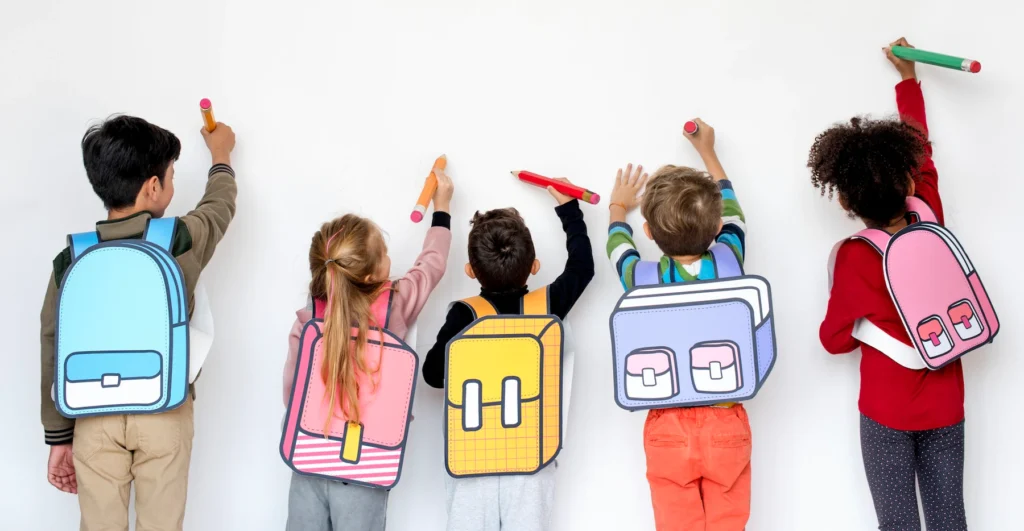What is inclusive schooling?
What is inclusive schooling and what are its basic principles?
The concept of inclusive schooling is increasingly present in schools. Determining what an inclusive school is and what its principles are is a first step, but it is necessary for schools to adapt to this type of teaching, establishing the necessary academic structures.
At Laude San Pedro International College we want to have an absolutely inclusive space, in all possible aspects, so that our students feel comfortable on a permanent basis and can face any educational challenge.
What is an inclusive school according to UNESCO and LOMLOE?
Before determining the principles of inclusive schooling, it is important to understand the concept.
UNESCO is the UN organisation in charge of education and culture at the global level. This organisation has established a definition of inclusive school, valid for any educational space in the world, determining that an inclusive school is one that caters for diversity.
Students have particular abilities and are therefore different. A school should cater for these abilities and, as far as possible, offer personalised alternatives. UNESCO not only seeks to protect diversity, but also encourages schools to promote diversity, regardless of the qualities of individual pupils.
The LOMLOE is the education law currently in force in Spain. This law also establishes a specific section to promote inclusive schools, based on the principles that govern it.
According to the Spanish Law, the inclusive school should focus on the quality of education, providing the adjustments that each pupil needs within reason. Spanish legislation also relates academic inclusion to the possibility of adapting programmes to the needs of each individual, modifying curricula and offering personalised attention.
Basic principles of inclusive schooling
Determining what an inclusive school is is not enough; it is important to implement a series of guidelines that are present in the day-to-day life of the school, and that allow diversity to be one of the school’s values.
These are the basic principles on which the diverse school is based:
- Respect for difference: Respect is the basic value when we talk about inclusive schools. It is important that all students feel comfortable and have the environment they need.
- Integration: All students should feel included in the classroom, teachers are key in this regard, the aim is that all students feel supported and included in the normal dynamics of the classroom.
- Encouraging diversity: As mentioned above, it is not only a matter of adapting the pace of the class to the particularities of each pupil, it is also important to encourage difference and assimilate it as a value, not as a handicap.
- Different paces: Schools should establish different paces that allow pupils to adapt according to their abilities. Educational diversity also means that each pupil has an appropriate learning space.
Adapting the school to the learner
With regard to the creation of an inclusive environment, it is very important to have specific environments that favour diversity. Among the actions carried out in schools, the following should be highlighted:
- Adaptation of curricula: This is one of the most important measures, if the student has a personalised curriculum, he/she will be able to face his/her diversity as an educational advantage.
- Early intervention: Solutions based on early education are also very important. A student with support from the earliest school years will have a suitable environment for later academic development.
- Monitoring policies: Not only do we seek to implement certain principles, but it is also important that each student is evaluated to determine the effectiveness of the measures established by the school.
- Anti-bullying actions: For some years now, educational institutions have been focusing on a clear objective: to put an end to bullying, policies related to diversity must establish protocols and specific solutions to behaviour related to bullying in the classroom.
- Facilities: Diversity also includes the possibility of access to all areas of the school. Schools must guarantee such access based on adapted facilities.
- Family inclusion: No inclusive programme is complete without families. The school must encourage families to be present in the daily lives of students through specific activities.
Inclusive education at Laude San Pedro International College
The concept on which we base our educational programmes is Amazing Learning, for our school it is important that the pupil feels integrated in an educational space that motivates him/her, but to achieve this, we are aware that he/she must find the right environment and the right tools.
All our programmes are articulated around the use of English as the vehicular language, however, for our centre it is important to adapt the pace of learning to the qualities of each student, both in terms of the language itself, as well as the rest of the subjects.
Inclusive education is a priority for our school from the very first years, which is why we include early attention during the first academic stages. This curricular adaptation is maintained in subsequent years, helping our pupils to achieve their objectives through adapted curricula.
At Laude San Pedro International College we establish all kinds of policies focused on the inclusion of our pupils, eliminating any behaviour or circumstance that could lead to exclusion of any kind. The result is that all our pupils feel comfortable in their daily lives and are motivated enough to face the challenge of their own education.
If you have any doubts or questions about our inclusion policies for students, you can contact our school and our team will answer your questions immediately.









